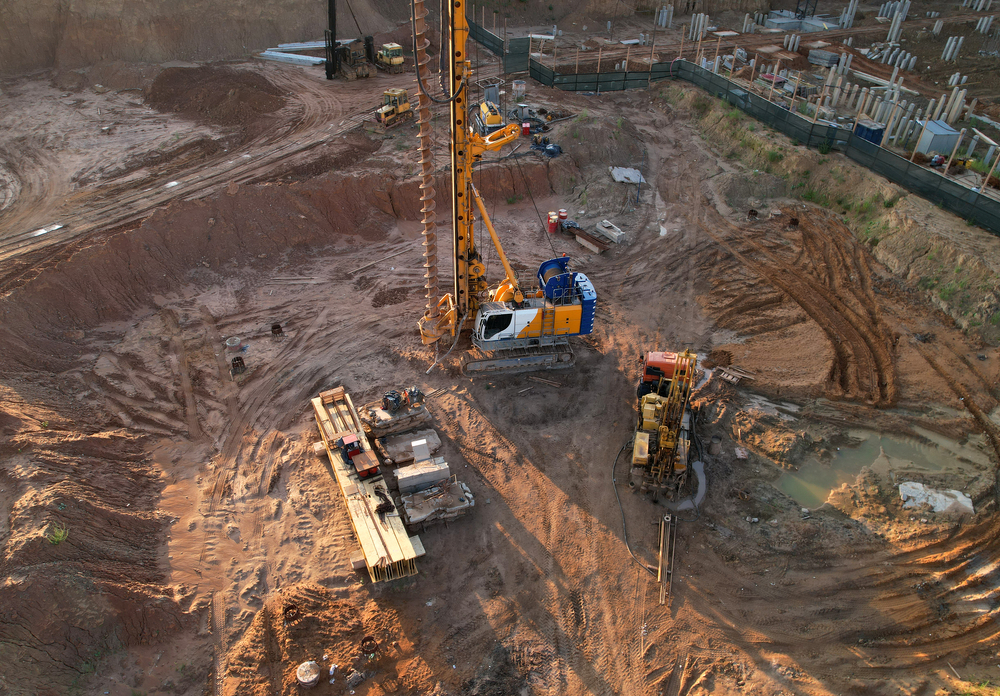Some Known Facts About Geotheta.
Some Known Facts About Geotheta.
Blog Article
The Best Strategy To Use For Geotheta
Table of ContentsGetting My Geotheta To WorkThe smart Trick of Geotheta That Nobody is Talking AboutAll About GeothetaAbout GeothetaThe Ultimate Guide To Geotheta

They conduct website investigations, collect examples, perform lab tests, and assess data to review the viability of the ground for building and construction projects - Consulting Engineers. Based upon their findings, geotechnical engineers offer referrals for structure layout, incline stability, keeping frameworks, and reduction of geotechnical hazards. They collaborate with various other professionals, such as engineers, structural engineers, and construction groups, to make certain that geotechnical considerations are incorporated into the general project design and implementation
By analyzing the actions and residential properties of dirt and rock, they can determine possible geotechnical hazards such as landslides, soil settlement, or slope instability. Their knowledge helps stop failures or accidents that could jeopardize lives and building. Here are some comprehensive tasks and duties of a geotechnical engineer: Site Examination: Geotechnical designers conduct website examinations to collect information on subsurface conditions.
They translate the data to understand the properties and behavior of the dirt and rock, including their stamina, permeability, compaction features, and groundwater conditions. Geotechnical Analysis and Layout: Geotechnical designers assess the information accumulated throughout website examinations to examine the stability and suitability of the website for construction tasks. They execute geotechnical calculations and modeling to review aspects such as bearing capacity, negotiation, slope security, side earth stress, and groundwater flow.
About Geotheta
Structure Style: Geotechnical designers play a critical function in designing structures that can safely support the desired structure. They assess the soil problems and load requirements to establish the ideal structure kind, such as shallow foundations (e.g., footings), deep structures (e.g (https://forums.hostsearch.com/member.php?265240-geotheta)., stacks), or specialized techniques like dirt enhancement. They think about factors such as settlement limits, bearing capability, and soil-structure communication to establish optimal foundation designs
They assess construction plans, display website activities, and perform area assessments to verify that the layout recommendations are complied with. If unanticipated geotechnical issues develop, they analyze the circumstance and offer referrals for remediation or adjustments to the design. Risk Analysis and Reduction: Geotechnical engineers assess geotechnical dangers and threats related to the task website, such as landslides, liquefaction, or dirt disintegration.

Cooperation and Interaction: Geotechnical engineers function carefully with various other professionals included in a project, such as engineers, architectural engineers, and construction groups. Efficient interaction and cooperation are necessary to integrate geotechnical considerations right into the general task style and building and construction process. Geotechnical designers provide technological expertise, answer questions, and ensure that geotechnical demands are fulfilled.
Not known Details About Geotheta
Right here are some kinds of geotechnical designers: Foundation Engineer: Structure engineers specialize in creating and analyzing foundations for frameworks. They assess the soil conditions, lots needs, and site characteristics to identify one of the most suitable structure kind and style, such as shallow structures, deep foundations, or specialized methods like pile foundations.
They evaluate the elements affecting slope stability, such as dirt residential properties, groundwater conditions, and slope geometry, and establish strategies to avoid slope failures and mitigate dangers. Quake Engineer: Quake engineers focus on evaluating and developing structures to endure seismic forces. They examine the seismic risk of a site, examine soil liquefaction possibility, reference and develop seismic layout requirements to make certain the security and strength of structures throughout quakes.
They carry out area screening, gather samples, and evaluate the collected information to identify the dirt buildings, geologic developments, and groundwater problems at a site. Geotechnical Instrumentation Designer: Geotechnical instrumentation designers concentrate on tracking and determining the habits of soil, rock, and frameworks. They set up and keep instrumentation systems that keep an eye on factors such as soil settlement, groundwater degrees, slope activities, and architectural displacements to analyze performance and give very early warnings of possible concerns.
What Does Geotheta Do?
They perform tests such as triaxial tests, consolidation tests, straight shear tests, and leaks in the structure tests to gather information for geotechnical analysis and design. Geosynthetics Designer: Geosynthetics engineers specialize in the style and application of geosynthetic products, such as geotextiles, geogrids, and geomembranes. They make use of these materials to enhance dirt security, enhance slopes, supply drainage options, and control erosion.
They often tend to be investigative individuals, which suggests they're intellectual, reflective, and investigative. They are curious, systematic, rational, logical, and logical. Some of them are also social, meaning they're kind, charitable, cooperative, client, caring, handy, understanding, tactful, and friendly - Geo Tech Engineering.
In the office setting, geotechnical engineers use specialized software devices to perform computations, produce designs, and evaluate data. They prepare records, evaluation task requirements, communicate with clients and employee, and coordinate project tasks. The office setup provides a helpful environment for research study, analysis, and collaboration with various other professionals associated with the job.
Unknown Facts About Geotheta
They often check out task sites to conduct site investigations, examine geotechnical problems, and collect information for evaluation. These gos to include traveling to various places, sometimes in remote or tough terrains. Geotechnical engineers might do soil tasting, conduct tests, and display building and construction activities to make certain that the geotechnical elements of the job are being carried out properly.
Geotechnical designers additionally function in specialized geotechnical research laboratories. Geotechnical lab engineers function thoroughly in these settings, dealing with testing equipment, running instruments, and tape-recording data.
Report this page